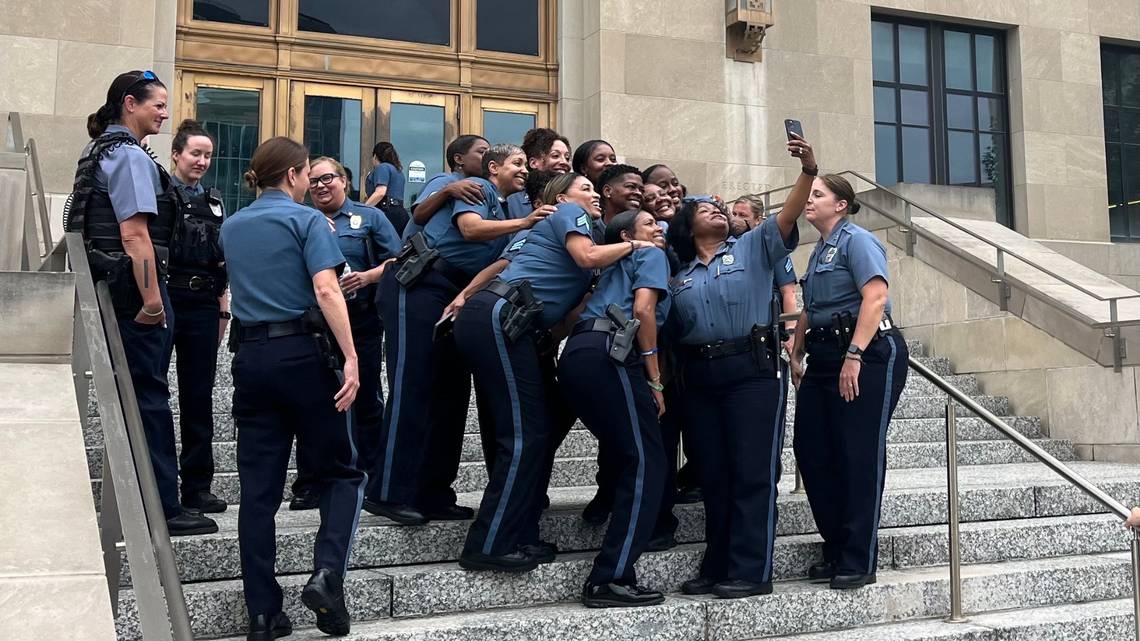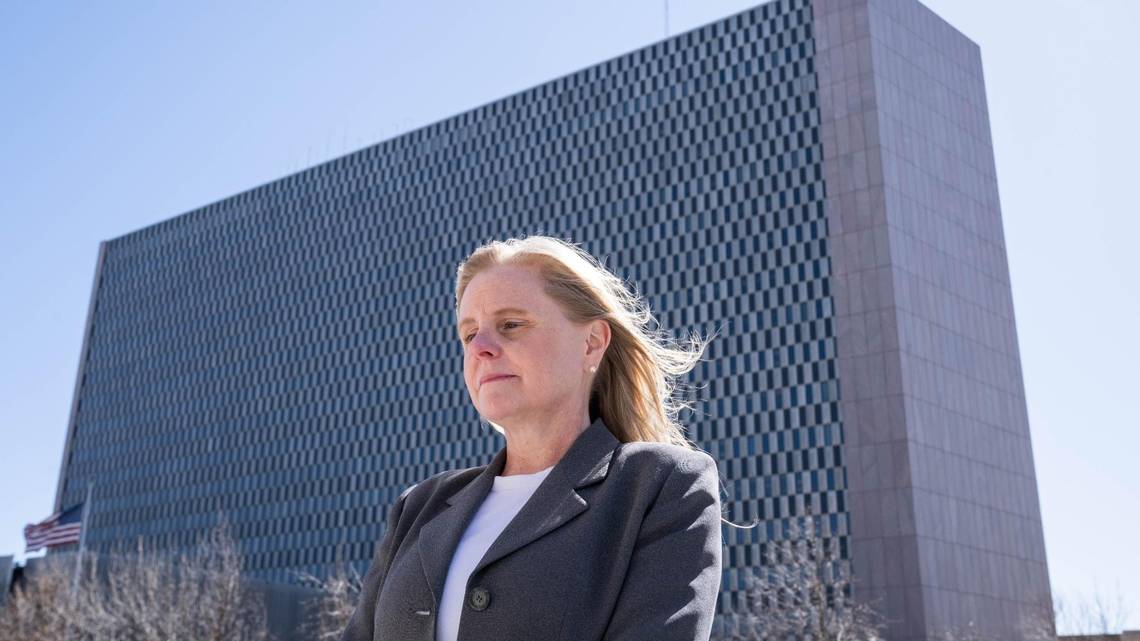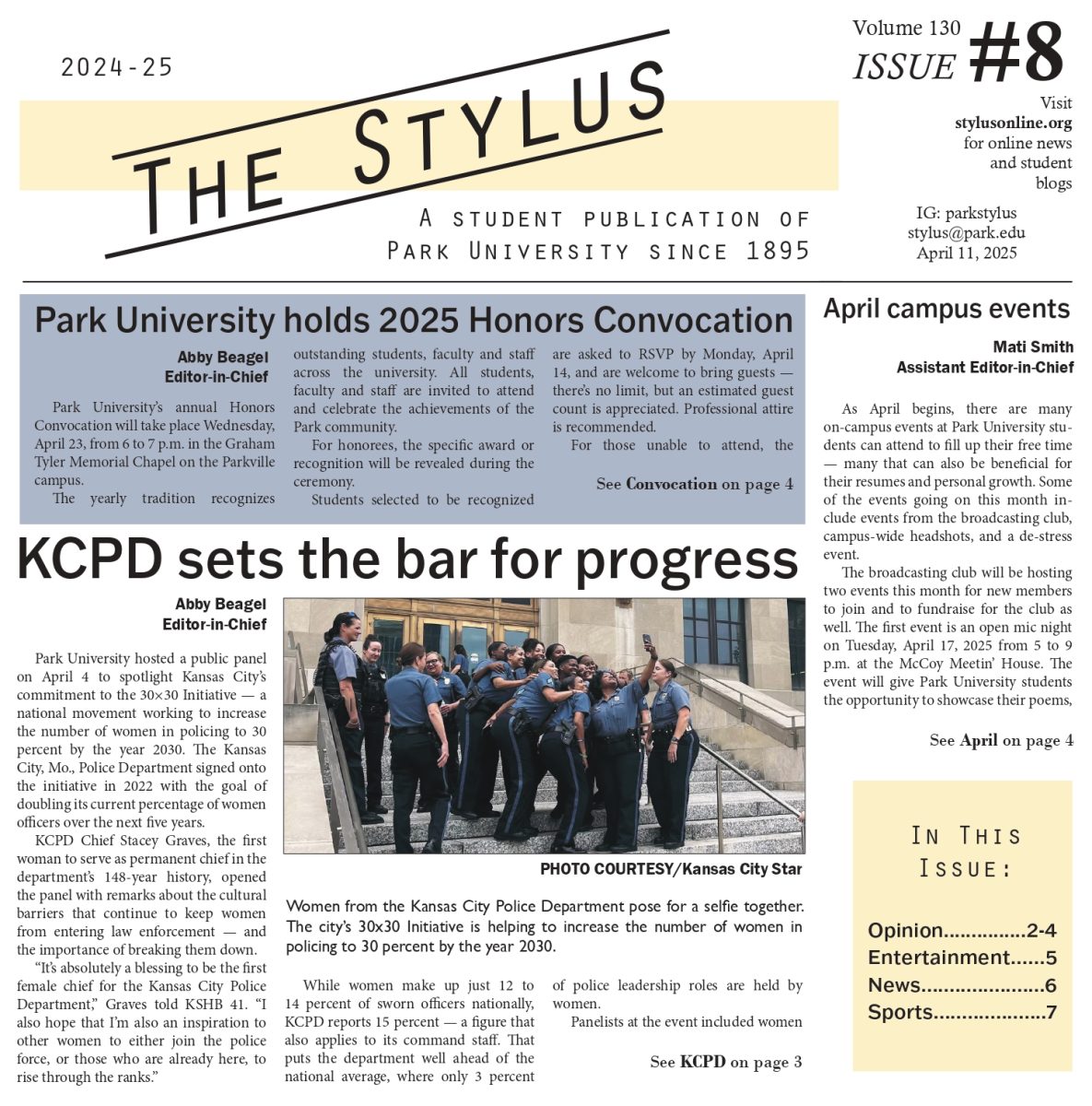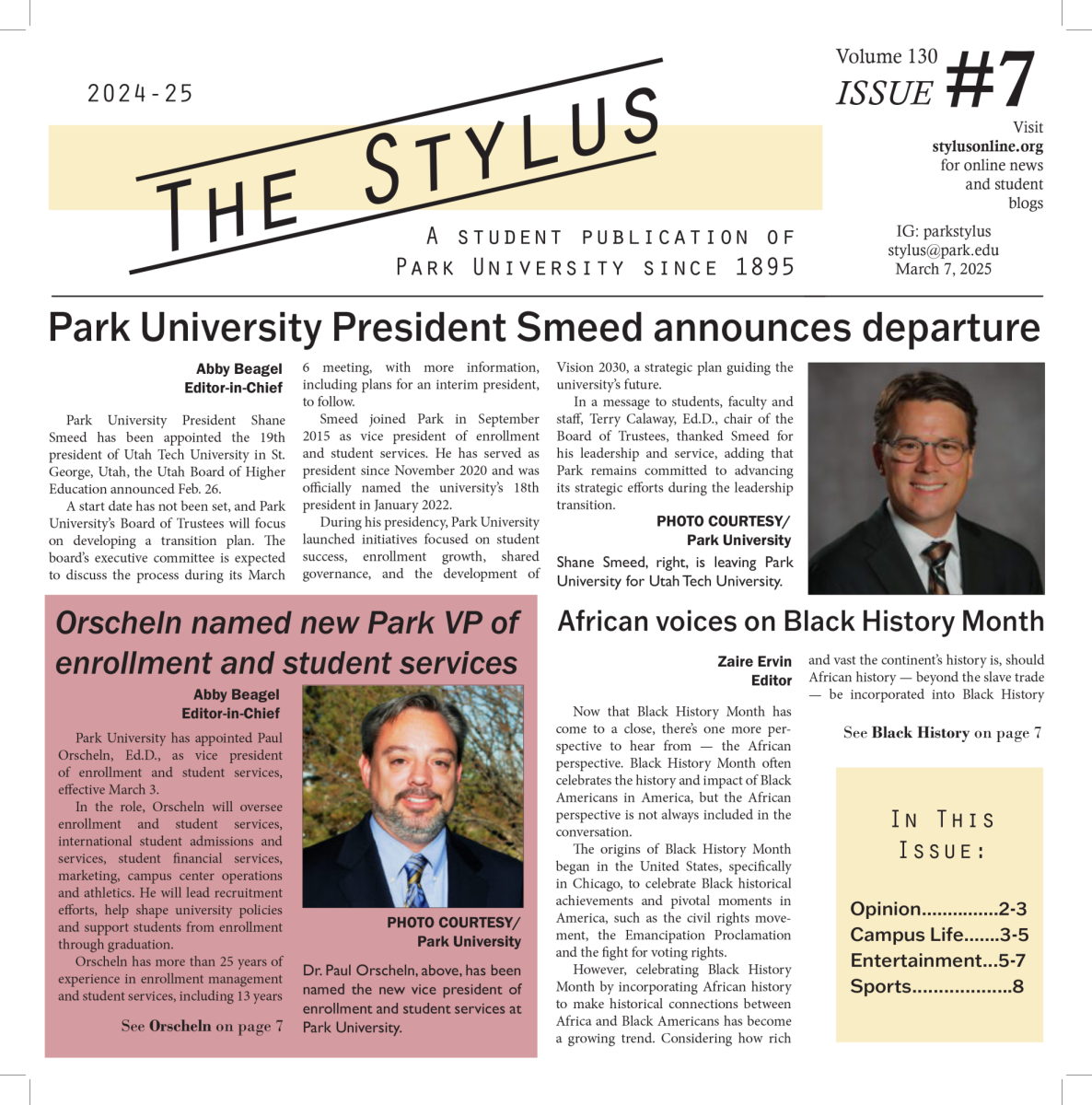“Aftermath of the Global Financial Crisis: Are We Really Better Off?” was the title of the 5th Park University Dean’s Distinguished Lecture Series held Sept. 30.
Peter deSilva, UMB financial corporation president and CEO, spoke about different topics concerning the economy today and explained the condition of the American economy in 2008 during the recession.
Dr. Brad Kleindl, School of Business dean, welcomed students and guests such as Park University President Dr. Michael Droge, board of trustees members, Michelle deSilva, advisory council members, faculty and staff at the Graham Tyler Memorial Chapel.
“Before I begin my remarks,” said deSilva. “As a trustee of this university, I am extremely proud of what we do how we deliver our educational excellence that we do deliver. Park is a leader, so if you’re a student you’re in a great place.”
DeSilva began his presentation with a retrospective of the economy. He mentioned the recession and the years the United States economy was in crisis and explained it with a series of charts and tables.
“We lost a trillion dollars in market capitalization one week,” he said. “So the value of stocks went down one trillion dollars, which began something called wealth destruction.”
According to deSilva, wealth destruction caused the government to contract spending affecting markets including housing.
DeSilva also explained the current state of economy and talked about monetary and fiscal policy. In his presentation, he explained the 2009 American Recovery and Reinvestment Act and the 2010 Tax Relief Act. To decrease unemployment, he talked about government movements such as Operation Twist and QE Open End.
One of the major points was to restore confidence that was lost after the recession in which deSilva explained the program developed to do so called the TARP, Trouble Asset Relief Program.
Taking into account the housing market in the United States, deSilva said he believes the U.S. doesn’t have a plan on how to operate and finance homes.
“We are the only ones that have 30-year mortgages,” he said. “Other countries it is 15 (years).”
Later, deSilva talked about the current economy. He explained the drivers of economy including – employment, housing, global environment and manufacturing.
“Unemployment rate is coming down,” he said. “More people are working, denominators are getting smaller and smaller which make it much easier, and a mix of new jobs have been created.







